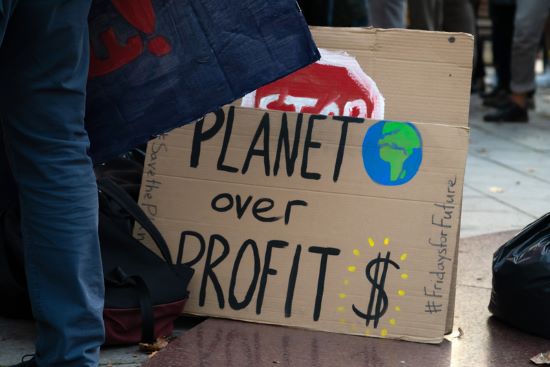Whether in Canada, the United States, Mexico, the European Union or elsewhere, people of voting age seldom prioritize fighting climate change as their number one concern. One of the reasons is that those talking about climate change fail to bridge the knowledge gap to raise awareness to a level where action is demanded. Another is that those who are more likely to vote are older. Whereas, if you ask young people not yet of voting age, fighting climate change for them is very much a priority.
It is a generational thing, a cultural thing and an economics thing. Voting history and preferences show that the older you are the less you are willing to support decarbonization climate change policies. Why is this? Older voters who make up a large portion of the electorate in Global North countries tend to be less aggressive when being asked to spend their money on macro-environmental issues. Engaging them requires going local where NIMBYism works. If climate change is drying up local streams, rivers and lakes, older voters are incentivized to act. Younger people, many of them of a non-voting age, see climate change from a macro perspective.
Another reason older voters are less demanding may have to do with not being around long enough to see climate change mitigation impacts. What does get them involved is appealing to their legacy, that is the impact on their grandchildren from climate change mitigation inaction.
Culture shapes climate change attitudes. In the Global North Europeans appear to be more climate change aware than Americans. Canadians are equally more aware than Americans. Comparing the Global North and South is another matter. In a November 2023 global survey of 110 countries, where a large majority of citizens in European Union countries described themselves as knowing a lot about climate change, those living in Global South countries like Benin, Liberia and Haiti, appeared to know very little or stated they had never heard about climate change and its cause.
States behavioural scientist, Dr. Erik Thulin, “Knowing your audience is key…to help us understand in what ways people across the globe…are different in their knowledge and attitudes around climate change.”
Is awareness a valid measure to determine willingness to act?
Global North countries are far more aware of climate change than many in the Global South. This appears to correlate to levels of education, income and access to communication.
Awareness may lead to expressions of concern but does that lead to action?
Not when there are competing priorities, what voters in the upcoming U.S. election would call “kitchen-table issues.” These involve jobs, income, healthcare, education, affordable housing, and crime. Climate change doesn’t make the top five. In fact, in U.S. polling, although voters acknowledge climate change as an important issue, less than 5% rank it as the most important one facing the country.
Younger people are the age demographic most willing to act.
A 2021 ten-country survey of Global North-situated young adults between the ages of 18 and 29 indicated a willingness to alter the way they lived and worked to reduce climate change impacts. These younger people expressed negative emotions and higher levels of anxiety about the subject. They were more willing to become active and even challenge the complacency of older generations, accusing them of culpability in contributing to environmental degradation and global warming.
In a cultural context, do these survey results hold for young versus old in both the Global North and South? Apparently!
Further Global North and South comparisons on willingness to implement climate change mitigation strategies indicate the following:
- Global South countries show greater support for implementing geoengineering solutions and other controversial climate interventions including ocean and cloud seeding, ocean carbon sequestration, enhanced weathering, solar radiation modification, and engineered carbon dioxide removal.
- Global North countries show a willingness to invest in carbon capture as well as natural solutions like afforestation and reforestation. They are less willing to introduce controversial technological solutions and more interested in doing studies.
- Global South countries seek climate change mitigation capacity-building and financial support, technology transfer, and a calling to account from countries of the Global North who are seen as the major contributors to climate change.
- Global North countries look to market-based methods like carbon taxes and cap-and-trade systems along with technology solutions like carbon capture and sequestration to help mitigate climate change.
- Global South countries increasingly are expressing greater urgency which may have a lot to do with current extreme weather events related to climate change wreaking greater economic damage upon them than on countries in the Global North.
With COP29 taking place in November in Baku, Azerbaijan, countries are being asked to make national climate commitments focused on transitioning from fossil fuels and a rapid expansion of renewable energy. Global North countries are expected to top up the financial loss and damages fund and mobilize further capital from both private and public sources as was agreed to at the time of the Paris Climate Agreement to help Global South countries implement mitigation and adaptation strategies to address current and future climate change. Will good will triumph? Or will personal and national self-interest be prioritized over planetary health? We will soon know.
To accelerate to a low carbon future, whether in the Global North or South, those who lobby for fossil fuel companies and claim our civilization and its prosperity are in peril need to stop calling the setting of aspirational climate mitigation goals and renewable and alternate energy targets delusional. Without setting goals and timelines the drift will continue further imperilling future generations and the planet.









